Ok. Firstly, if you are wanting to be a trailer music composer then your work is already pretty niche. Is that enough though?
Can you niche down even further? If so how do you do that successfully and also stay true to what matters to you as a creative person?
These are actually really important questions that focus on a core matter for any creative person; finding the sweet spot where your enjoyment and (huge) income are one.
Transcript
[Intro music]
Hey guys, welcome to another episode of the Trailer Music Composer’s Podcast. In today’s session I’m gonna be covering the simple idea of finding your niche, or if you’re from some parts of the world, ‘nitch’. The reason I’m covering this is because it’s quite an interesting one, obviously I kind of get asked this question again, ‘How do I find the sweet spot, the place where magic happens for me?’ Not like that! It’s really interesting this because finding your niche isn’t a case of finding the bit that has the lowest competition or necessarily even finding the bit—the thing that you enjoy the most. Or necessarily finding the thing that you are the best at.
Let me get into that, because when I started out I always wanted to be a film composer like Danny Elfman. That was my main game. My main aim was to be scoring films, big features, and I obviously endeavoured to do that for many years, and it’s not until actually, honestly, until I got into trailer music where I was like, ‘Oh, actually this kind of ticks my boxes.’ Now this is the wonderful thing about it, I wanted to get into film composition and along the way—it’s like I had the film composition as my end goal, right? This big mountain in the distance where I was like, ‘Yepp, I will be stood there next to Danny Elfman in the great film composer hall of fame, you know me, good old Danny, John Barry, and Williams just chilling out, talking about cool stuff.’ So that was my mountain in the distance, hanging out with the greats. Along the way you kind of go, ‘Ok, well how do I get from here to there?’ You see this vast landscape of things and obstacles to overcome so you think, ‘Ok, what’s my first step?’ My first step is obviously to try and get some money in the door so that I can continue my endeavours. Now, some of you may know that obviously I had a side job—or I guess it was my main job actually because it was the thing that was bringing the money—of teaching music. So whilst I was doing that I was focusing on getting other avenues going. I sort of went into corporate film, which you know, any of you who do it, I take my hat off to you. It’s incredibly tedious and difficult because you’re endlessly juggling the client’s desire for originality with the client’s actual desire for something really remarkably boring. I obviously dabbled in advertising, which actually I still do occasionally, and I did that for many years. I did dance work, installation work, all sorts of avenues of composition, and this is the wonderful thing about finding your niche, is sometimes you just don’t know where it is. This is the wonderful thing: I didn’t even realise trailer music was a thing. Along with the vast majority of people in the world who thought the trailer music was just stuff from the film. Even though, obviously, being a big fan of film scores, I never recognised the music from the film score in the trailers, but I didn’t make that connection in my mind, which is almost laughable. It’s the wonderful thing about a film trailer, it kind of whisks you away, magical. It’s like this lovely romance going on between you and the trailer, isn’t it? It’s like, ‘Come into my beautiful world. Enjoy me. Love me.’ And then buy the film. I never sort of made that connection. So along the way I was dabbling in all these other things, constantly kind of searching for a way to become a film composer. Remember this was my big goal. Along the way I did these corporate films, which were great, because it was kind of like first ventures in dealing with clients. And I did advertising, which was my first venture in consistent failure. [Laughing] As it were. With advertising you’re, more often than not, unless you’re a select few, you’re pitching to do tracks for free and you’re not actually getting paid upfront. You’re getting paid with the promise that you’re going to get the big bucks at the end. I did hundreds and hundreds of advert pitches. Admittedly I’m not saying the quality of my work was any good, but I learnt a lot and it was a steep learning curve for me, still thinking, ‘I’m gonna be a film composer at the end of this! I’m gonna be a film composer.’ Whilst I was doing the advertising I was studying film scores and trying to improve my production craft.
I have to apologise if this is quite a rambling way of getting to finding your niche, but it’s really important because the thing that was important here was the play aspect. Because I had—the money issues were taken off my shoulders because of my teaching, I had the opportunity to kind of try everything. Like I said, from corporate films, to dance, to—I wasn’t actually dancing, just in case you—I was writing much for dance. I was writing much for choir, and all sorts. I had all these lovely adventures in the world of writing music and what it kind of gradually revealed to me was the things that I actually enjoyed. It’s kind of like when I used to be in a band, it took me all those years of being in a band to realise I didn’t actually enjoy being in a band. I enjoyed writing music, and that was the thing. Writing music was the thing, so I was like, ‘Ok, let’s write music!’ Then I do all these other things and it was just wonderful to be able to play so much. Sometimes I was lucky with the corporates that they would give me a budget for recording and then that would sort of, ‘Oh wait a second, I can get real players in here.’ You know? I got a trumpet player to come and do some spaghetti-western-esque stuff for an Adidas advert, which I didn’t get in the end. Obviously I got my friend Tim, who features heavily in so much of my stuff still, as a cellist. I got some other friends playing clarinet and viola, all sorts of things. Again, I was finding my way. ‘Do I enjoy it?’ I found out that actually I don’t really enjoy the recording stuff. I’m not that kind of technical minded in the sense that I sit there and enjoy thinking about the mic distance and mic placement and acoustics, and all that stuff. A 2 channel mixer still confuses me, let alone a humongous mixing desk so I’m quite happy when we do do recording stuff to sit back and let the masters do their work.
So I was playing in all these areas, exploring what it was that I was enjoying. And that’s the important part here of the story, is to focus on what it is you enjoy. Because at the end of the day, if you’re chasing money, you’re gonna get the money eventually, well, maybe if you persevere, and you’re gonna realise, ‘Oh, actually I’m being paid to do something I don’t enjoy.’ Which sucks. A lot of you are probably already doing that anyway, or at least a certain level of unenjoyment. So be mindful of not chasing other people’s goals. And the reason I say that is how it ties in with focus on your enjoyment. If you want to sound like those epic amazing queues that Audiomachine release, and you enjoy doing that, do it. Go for it! Find out what it is about that epic sound that you enjoy. Find out what it is about that whole process that you enjoy. This was the wonderful thing: I stumbled on trailer music. I had a brief stint writing for Pusher and it was a humongous learning curve for me. I’d never done trailer music before, I’d done some library work. Which again, this was another thing, writing for libraries, that was one of the things I realised I enjoy. Writing for libraries was—oh, you can just write stuff that you like and a library buys it from you! Amazing. So I’d done some—they were essentially trailer tracks, kind of guitar based trailer tracks for a library, but it was more focused on TV promos, so in my mind it wasn’t sort of trailers it was kind of TV advertising? Then obviously Pusher got involved and were like, ‘Hey! Why don’t you try writing for us?’ So I wrote for them and had some success, but mostly it highlighted to me how far behind I was on things like mixing and mastering and production for those … trailer things. The wonderful thing there was, like I said, I didn’t realise what trailer music was, really. I knew obviously there was music on trailers, doh, but I didn’t realise it was a thing. All of a sudden this company Pusher got in touch with me and it was like, ‘Woah! There’s like a whole world of people who just write music for film trailers. This seems pretty cool!’ And actually the second trailer I pitched on was The Avengers… the first one, what’s it called? Shame on me! Shame on me. Well, it’ll come to me just as I stop recording this, I’m sure. That was a huge deal for me, I was like, ‘Oh my gosh, I’ve gone from writing library music and corporate stuff and the odd advertising cue here to suddenly writing stuff that is associated with Hollywood films.’ I felt like I’d suddenly reached that pinicle that I was aiming for, that kind of film composer. Actually, was it my third—it might have been my first actually. The first one was a trailerised version of Danny Elfman’s Men In Black theme for Men In Black 3, which I did land a cue on, which was huge for me! Because obviously Danny Elfman was the reason I was in film scoring. I was like, ‘Oh my gosh, this is amazing, I’m getting to work with Danny Elfman’s music on a film that Danny Elfman scored. Ah!’ It was a true fanboy moment for me.
The great thing there was highlighting that maybe it wasn’t actually the film scoring that I wanted. It was maybe the association with the films. The idea that I was part and parcel of this wonderful, magical world. I’m still in awe of the first few times I went to the cinema to see films like Robin Hood: Prince of Thieves or Jurassic Park. As a kid, back then that was big. That was like—or Golden Eye! The swan dive off the dam. Those moments in cinema were magical. That’s what trailer music started to become for me. This magical world.
Now let me take a few steps back from there. I’ve just got to trailer music, so I want to remind you of my main aim which was features. At some point I had been hired to do some feature film work, and I have had a huge mixed response—not in my—well yes, in the music that I produced, but also in my experience of it. A huge mixed response as to how much I actually enjoyed doing it. Now, I don’t want to put anyone off, but my experience was it was lots and lots of work. And lots of changes, and I didn’t really enjoy the process, and I thought, ‘Well if I don’t really enjoy the process here, when I’ve got a small budget film with only like the director to answer to, what’s it gonna be like as I go up the chain and I’ve got a bigger team of producers to answer to?’ Etc, etc. It was really interesting for me because suddenly that mountain in the distance of being a film composer kind of disappeared. Well, it didn’t disappear, it was still there but I thought, ‘Maybe I don’t wanna go to that mountain? Maybe I don’t want to be a film composer. Maybe that’s not my niche. That’s not the thing I enjoy. The reason I’m in this isn’t to write film music, the reason I’m in this is to write something else.’ At that point I didn’t know. There were a few months of floundering where I thought, ‘Ok, maybe it’s advertising.’ But those of you who have done advertising work, you’ll understand my frustrations when you talk about the client calls—conference client calls as well. And the feedback you get from clients, and the constant, constant amends because the adverts are always changing. The music always has to change with it. Obviously each person in the room needs to have an opinion about what you’re doing as a musician, as a composer. It was very challenging, so I thought—I floundered for a while, I wasn’t sure what I was gonna do. I knew I still wanted to write music for a living but it just wasn’t doing it for me. I was kind of a bit tired of writing the same old uplifting advertising tracks. And feature film, although you have a certain amount of freedom to be—to go crazy, as it were, the format wouldn’t allow that in such a way. I liked the idea of, sort of like Danny Elfman, carrying a motif through a film and orchestrating it differently so that you’ve actually got one idea that carries through a whole film. But that’s dependent on the director, you’re not the—unless you get a really lovely relationship with a director, it’s his vision, or her vision, so you need to be mindful of that. You have to really drop your ego, hugely, with that stuff. In fact, actually any music writing for media, I think your ego has to be aware that it’s gonna take an absolute beating. Which is good, ‘cause the ego needs to be kept in check.
Let me fast forward back. So I’d been floundering a while, not sure, I didn’t really wanna be a film composer anymore, as such. ‘Ok, maybe I do advertising. I’m enjoying it but…’ Then I did some work with Pusher and I found that I enjoyed it but I just felt so, so out of my depth. Hugely out of my depth. Then that work kind of died off because I wasn’t winning many jobs and frankly my work wasn’t great. Then it wasn’t until Vic from Elephant Music throws me a sort of life ring. Life ring? What are they called? The floaty rings that you throw when you’re a lifeguard. [Laughing] You know, it’s amazing, I’m gonna blame having a very very young baby for my poor memory, but that’s always been the case really. Anyway! So he said to me, ‘We’re gonna start producing some trailer stuff.’ And he said, ‘We’re gonna do this sort of dark sound design. Are you in?’ And obviously I was like, ‘Yeah, I’m in! That sounds amazing.’ It was kind of life changing, really, because all of a sudden I wasn’t thinking about themes. All of a sudden I wasn’t thinking about keeping the music uplifting or hopeful. The music could be weird, and it could break rules. Obviously trailer music has its own rules but it didn’t have to stick to a visual format. It does in the end, but when you’re writing it you can get really weird. You can make sounds using anything you want. It doesn’t have to be a piano. It doesn’t have to be a cello. It doesn’t have to be anything. You can go and slam your toilet seat down and record it and turn that into a hit. All of a sudden you’re making music from everything around you. It was then that I realised, ‘Oh, this is the stuff I love. I love the freedom to make whatever sounds I want, kind of whenever it pleases me.’
Anyay, I know I’m talking about the ego there but that’s the realisation for me, actually the ability to get a little bit weird when I wanted to. Yes, there is that freedom in a lot of things like dance and some film scores. But I didn’t have to worry about anything really. Those first few tracks I did for Vic that was his album 22000AD for Elephant Music. Those first couple of tracks I did for that, they weren’t great. I was on there with other composers, what were their names? Thomas Voe, Greg Dombrowski, sorry if I said your names wrong guys. Vic sent me their music and they’d been doing trailer music for a while and I was thinking, ‘Gosh, these guys are amazing.’ They were getting these huge hits, they were doing these huge crazy rises, it was like another world to me. It was like someone had opened up like a wonderful cupboard of toy sounds that I’d never really explored. Well not since my days at university when I was kind of free to explore anything I wanted. That was the interesting thing, at uni it was kind of like, ‘Hey, just get weird. Make some noise.’ You could just do whatever you wanted. For instance, one of my fellow students at university, his piece was a bow hung from string being blown by a fan. Which I know it’s art installation, and that was his jam, but we are all dealing with music and he was a big fan of John Cage, obviously. That was the thing, I loved just being able to get weird, and also being able to kind of go, ‘Oh maybe actually today I want to write a piece that explores … writing.’ To be able to kind of straddle the many genres, and that is where trailer music did it for me. I could straddle all these—[Laughing] I’m saying straddling, I don’t mean it like that guys, come on. I could straddle all these genres of music and still be a trailer composer. I could make sound design and then the next day do solo piano works, the next day do a string quartet, the next day do a full orchestra. I could do everything I wanted to, and anything, and still be in a niche. Still have a role. I could be a trailer composer. The great thing obviously as well for trailer composers is you don’t—your royalties are slim to none at best, because it’s usually buy out or sync placement fees, but the fees up front if you have a good representative—thank you Vic—can be great. It was just like all of a sudden I found my niche.
I found my niche by exploring. I’m not kind of guna suggest to you that, ‘Yeah, just take 10 years or so just exploring stuff.’ But the mistakes I made were I would occasionally chase the money (advertising) because I wanted to be a full time composer so badly. It was like anything that kind of dangled a cheque in my face, I’d be like, ‘Ok yeah. Yeah I’m doing that. Oh there’s another cheque. Oh yeah, I’m gonna do that.’ Regardless of whether I actually wanted to. Library music, and more specifically trailer music, had given me this wonderful focus of my creativity. So that was a big mistake for me, to constantly chase the cheques rather than focusing on my own sound. I know why I didn’t focus on my own sound, because I was told—I’d go to these networking events with big composers who were in the games industry, the film industry, ironically the trailer industry that I didn’t even notice, and they would all say, ‘Guys, stop trying to be Hans Zimmer’—which I was at the time—’and find your own voice.’ I was like, ‘Yeah it’s easy for you to say ‘cause you’re getting money and stuff.’ So I spent a few more years trying to be Hans Zimmer and that didn’t really get me anywhere. It’s a bit of a catch 22 with that type of stuff because, especially with corporate and things, when you’ve got these clients who say, ‘We love that piece from Inception. Can we have that? But we’ve only got like £100’. ‘Ok, I’ll do inception again.’ Obviously I’m not advocating stealing ideas, it was music inspired by Hans Zimmer. There was no thieving going on. That was my mistake. I focused too much on the money even though I was getting money from teaching, but that was a fear thing. That was a big mindset issue that I needed to overcome. The fear of not getting paid. The fear of actually not being able to do this, because I’m sure all of you who have got into trailer music or anything creative have constantly had people say to you, ‘You know what? You’re gonna struggle for money. It’s gonna be a real challenge.’ Actually, you know what? Yeah, it was a challenge and I did struggle for money but now I’m not, because I persevered, and that’s what you need to do too.
Anyway, I’m gonna get side tracked! Another mistake—so the first one was focusing on the money—the second mistake which I’ve already alluded to, well I wouldn’t say alluded to, actually said, was that I didn’t focus on my voice. When I say focus on your voice, it’s a really—I always hated it when people say that. Because it’s like, ‘Shush! How am I supposed to focus on my voice? What is that? What does that even mean?’ And that means do the stuff that gets you excited. [Laughing] This is the freedom that trailer music gave me. It’s taken me, actually, a few years in the trailer industry, to realise this. Trailer music isn’t just epic music. Trailer music can be so much, and it can be so broad, and cover all sorts of emotions. That’s what you can do. You can enjoy doing whatever you want. You can contact one publisher, one library company and be like, ‘Hey guys, I wanna pitch this idea of uplifting solo harpsichord for those very very rare historical drama pieces.’ And they go, ‘Yeah, alright. Go for it.’ Obviously it might not get you much, or it might land you something ridiculously enormous. You never know, that’s the wonderful thing about it.
So to return to my initial proposition, how do you find your niche? Well, put it simply, pretend there’s no money, pretend there is no goal—when I say goal, there is obviously a goal, because you wanna find your niche—nothing that’s gonna influence your forward momentum. Pretend it’s kind of like, you’re one of those bands who go into the woods for 6 months to record their 3rd album. And I get why they do that, because they don’t want outside influence. It’s very hard for us now because we’ve got connection everywhere. Pretend you have no outside influence and you’ve just been sat in a room with these amazing toys, which you have, we all have them, even if you’ve just got access to Logic or— and no big libraries, no other instruments because you’ve got a sampler in all of your work stations. I’m sure you can buy a cheap microphone somewhere and focus on creating those sounds and that stuff that lights those fires. I think this is gonna be a repeated theme in the whole podcast, of focusing on the stuff that you enjoy, because my experience as a mentor to other composers is that when they find the enjoyment in their work, their work quality just increases 10-fold. It’s wonderful! When they’re kind of sat there trying hard to write an epic piece of trailer music—when they’re basically just learning the ropes really—they’re learning the structures, and that is very important. But when they’re just doing that and that’s their end game, the work they produce is often mediocre, and I have the same thing. But when they go, ‘You know what? I’ve been a guitarist all my life, I’m gonna take the kind of basic structure stuff that Rich is teaching us and I’m gonna just do a guitar and use guitar to do it.’ When they do that, all of a sudden that sort of self-imposed limitation just inspired this huge creativity in them. That is where you’re gonna find your niche. You’re gonna find that thing where you go, ‘You know what? I’ve always loved playing recorder, from the age of a little boy, I used to play recorder and I used to love it.’ Get that recorder out, see what you can do with it. That’s the great thing. The self-imposed limitations do so much for your creativity and for your output, and that’s why you’ll hear me talking about templates and you’ll hear me talking about a themed album, and you’ll hear me talking about certain genres because the limitations there inspire creativity and a certain level of output.
One little exercise you can do that’s gonna just help you get through this stage would be to sit down with a piece of paper and a pen and just write down all the things that you enjoy. I don’t mean like, ‘Oh I like playing badminton.’ I mean like within music. So if I was going to write that list now on the fly, it would be: I like sound. I like exploring sound. And this is why sampling is fun for me. I like recording and capturing sound. And I don’t mean having a recording studio and things like that, I mean just going out with a recorder. Even this iPhone, and just recording sound. Putting it next to a puddle and splashing. It’s like there’s magic in that sound! So that’s one thing. Sound! You know, that’s pretty broad. Ok, capturing the magic of sound, for me, that’s one of them. Another thing is I enjoy exploring instruments, the design—again, this comes back to sound—but the design of instruments and how they make sound and what sounds they make and how do the players get the sounds they do. That’s the wonderful area of orchestration which I personally think is the sweet spot, which is just exploring the textures of the instrument. Not necessarily the capabilities as in like virtuosic capabilities, but the capabilities of the sound palette that you can produce. And again, so there we go. So I’ve got my sounds, capturing sounds, I’ve got instruments and the sounds they make, and I like beauty. [Laughing] This sounds really silly when I say that, but I love a beautiful melody and that’s why composers like Arvo Pärt, his writing, where he just focused on very very simple ideas but it was often about the beauty. Can a single note communicate a single emotion? And that’s the lovely thing about music, sometimes in a film score you’ll have all this music going on and you’re not attached to it but then a single voice comes in with a single note and all of a sudden you’re sobbing. Well, maybe you’re not, maybe you’re thinking, ‘Well that was a poor choice of instrumentation.’ But I’m probably sobbing.
So they’re my 3 chore elements I think. Capturing sound, exploring instruments and their sounds, and capturing beauty. I’d probably put my fourth one in there that would be a kind of extension of capturing beauty, which is just capturing emotion. Because me, like many many others, I got into music—I say music rather than sound—because of an inability to express the emotions I was feeling as a teenager. Without getting out my tiny, very sad violin, talking about that, that was a huge gift for me. I couldn’t express the emotions I was feeling so I’d go upstairs, press record on my little tape recorder, and play the guitar. There was the beginning, there was the seed. So that was the wonderful thing, once you’ve sat down and you’ve done this little list for yourself you’ll go, ‘Oh, you know what? I’ve always enjoyed these things and they have always been present in everything I’ve done. I’ve just never really acknowledged it.’ So then you go, ‘Ok’—well, yours might be more specific, you might be like, ‘I like the music of Hans Zimmer. I like bwaaams and I like risers.’ I don’t know why you sound like that but, you know. In which case, if it’s more specific in that nature, then it probably will be a lot easier for you to find your niche. If you’re using broad terminology in the way that I was, you then go, ‘Well, how can I capture those things in the work I do?’ The answer for me is, actually it’s pretty broad and that’s why I have a broad level of output, because that ties in with my fifth passion, and that is patterns.
I’m fascinated by the minimalists and system music, not so much the mathematical side of the system music but just the idea that, what happens if you set this system running and what the music produces. And when I say systems I don’t mean—again, I don’t mean a computer system, I mean simple numbers systems or like Steve … swinging pendulums or looping tapes that are slightly different lengths of tape. Or attaching number systems like the fibonacci sequence to intervals. Or even like the morse code being translated into rhythms. All these patterns that you see in life, how can they become transferred into music? And that’s why I like teaching the way I do, because actually all the music in the world is based on patterns and formulas. Those combinations really meant trailer music was my niche. I could capture sound. I could explore instruments. I could capture emotion. I could translate my own mood into sound. I could explore patterns, and I could do all of those things and get paid for it. That’s the dream, right?
I hope this slightly breathless rambling British man has helped you a little bit to understand, at least to understand why it is you do what you do. And if I haven’t been able to get you to understand that, at least maybe get you to understand—or at least explore what it is you want, and hopefully find out how you can find your niche. Specifically in trailer music, it’s just a simple case—I’ve gotta skim over this because I’ve realised I’ve missed a huge chunk of this train of thought. Which is how do you find your niche in trailer music? You go back to that list and you go, ‘Well, ok, how does that translate?’ So if you’re a drummer and you’ve put drums down then you approach maybe doing some intros to action or crime dramas that have got those kind of like snappy swaggery drums in them. [Noise] With claps and all sorts of fun things going on. Or if you’re a guitarist you listen to maybe an artist like Cliff Lyn and go check out the stuff that he does for all sorts of trailers. That’s when you go into instrument specific stuff and that’s the wonderful thing, you know? Piano was a big one for me, so obviously I started writing piano works and so mine naturally kind of fell into drama. Which tied in with emotion! The wonderful thing about piano works is it’s very formulaic, filled with patterns and then the other one for me was I like the cello, I got a cello for christmas—it was probably about 10 years ago now. I couldn’t play it but I just liked the sound it made. And then I used that on some trailer stuff because I thought that I wanted to include this fun sound. Then all of a sudden I created this sort of voice of my own. Which was weird and wonderful cello noise in trailers.
So yeah, that’s what I’d like you to do. Write that list down and you can keep it broad like I did, or you can get instrument specific or style specific or genre specific. And remember, don’t focus on the money at the end of it. Obviously we do have to make money, but at this stage you’re just thinking about the creative outlet. There is a second stage to this where you cross-reference your creative outlet with the possibility of making money, because we all do need to make money at the end of the day. But that’s the wonderful thing about trailer music, there’s kind of an outlet for all kinds of weird. Even if your outlet is just, ‘I like the sound of a single piano being sampled.’ Boom. Sampler, there we go. Or, ‘I just like hits, big hits.’ And that was hits by the way. Then boom, you’ve got your sample packs. There’s just so many outlets in trailer music, and that is the wonderful, wonderful thing about it.
Guys, thank you so so much for taking the time to listen to this. I do hope you enjoyed it. If you did, please give us a rating, give us a review—I say us, I mean me. Let me know what you thought. Obviously you can head on over to the Trailer Music School and join the community. Go to my YouTube channel where I have all sorts of videos about trailer music and other things. I wish you all the best in finding your niche guys! If you want me to dive deeper into this, please let me know because I could talk about this stuff all day. Probably with some lunch and breakfast and dinner in between, but you know. Anyway, all the best guys! Thank you so much for listening.
[Outro music]

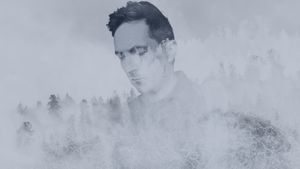
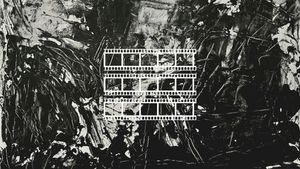
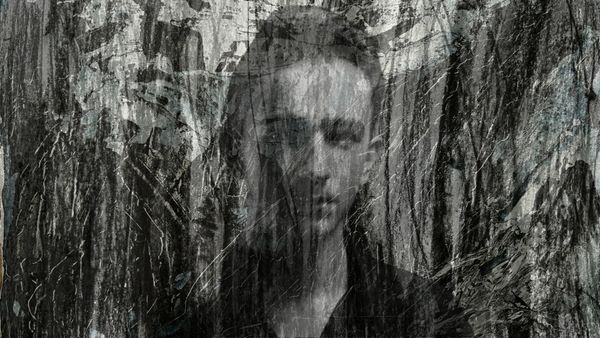
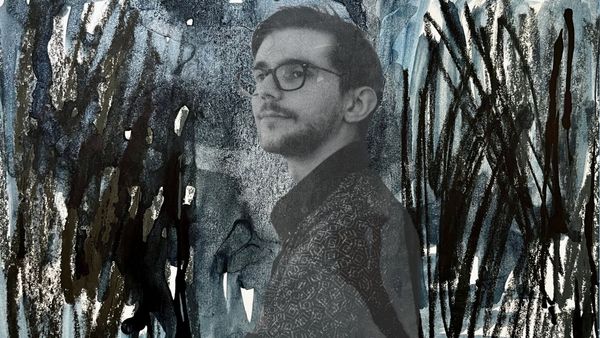
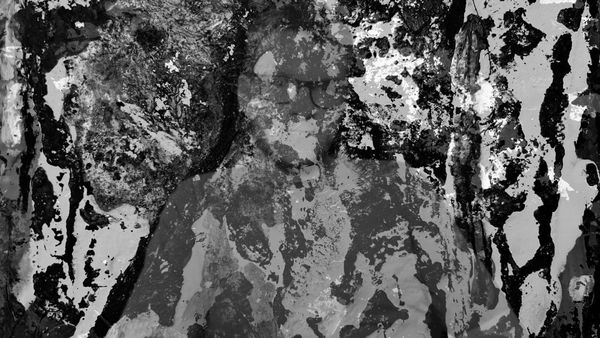
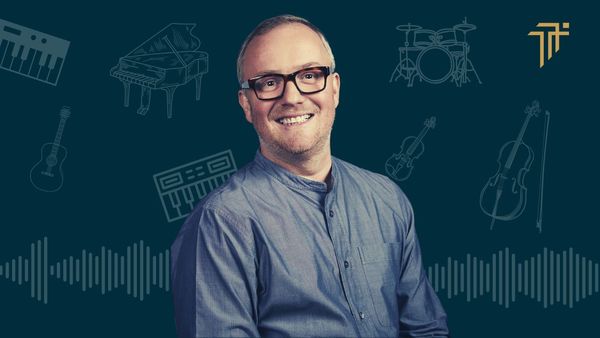
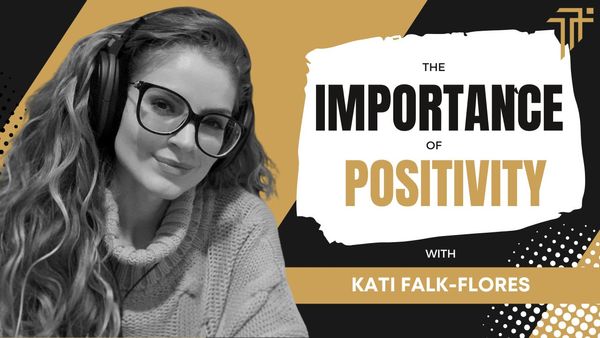
Member discussion